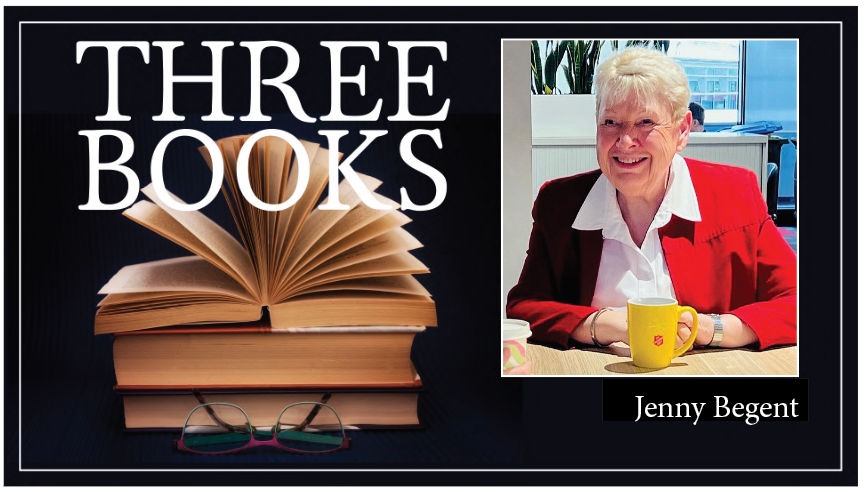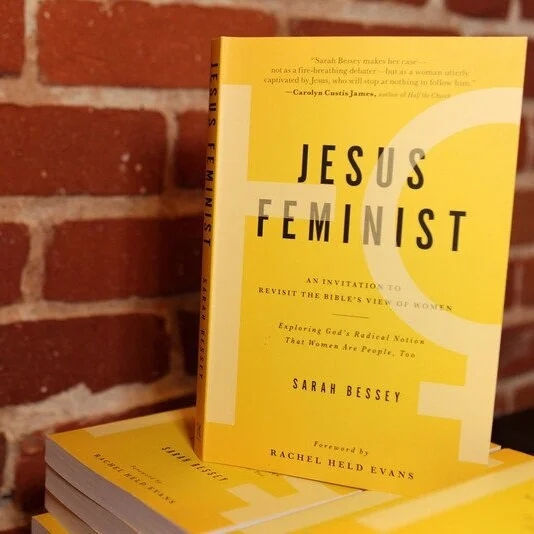Reading between the lines
- deansimpson7
- Aug 18, 2025
- 5 min read
Updated: Aug 21, 2025

Salvos Online continues a new weekly column – Three Books. Today’s guest bookworm is Jenny Begent, who heads up The Salvation Army International Development (SAID) department.
Besides the gospels and Psalms, which is your favourite book in the Bible and why?
Nehemiah is the Bible book for me, a story and a life of faith, leadership, perseverance and spiritual renewal. Nehemiah resonates with me because he was neither a prophet nor a priest; he was a cupbearer who became a governor. Like me, his life, whilst vocational, was spent in management and administration. Vocation takes on a different meaning when you don’t have a ‘flock’ to pastor or preach. Rather, you find yourself reassessing what vocation means in a role that calls for order, routine tasks, management, policies and systems. Nehemiah was an outstanding and courageous servant of God in a role that wasn’t strictly ‘priestly’.
Nehemiah records the reconstruction of the wall of Jerusalem. Together with Ezra, he led the spiritual revival of the people and directed the political and religious restoration of the Jews in their homeland after the Babylonian captivity. He is a model of great spiritual leadership. He developed a strategy to build the walls, delegated the work with so much accuracy and proficiency. Stood up for the poor and worked to eliminate unfair monetary practices. Outsmarted his enemies and faced their machinations head-on. He was a champion for community, bringing everyone together for a census, for meals and worship, and for celebration. Nehemiah is a profound statement about leadership. The rebuilding of Jerusalem’s wall, despite opposition, demonstrates that leadership can emerge from unexpected places.
Nehemiah is such a book of hope, even after exile and ruin, pointing beyond Jerusalem to a greater hope – a kingdom built not by human hands. God’s people can be restored. I urge you to spend some time reading Nehemiah, who held to a courageous faith to pursue a quite mad agenda and achieved restoration. This book, every time I read it, helps me to believe that if I am faithful and spiritually connected to God, I can do it too.
Besides the Bible, what is a Christian book that has strongly influenced your faith?
“Rest in your God-breathed worth. Stop holding your breath, hiding your gifts, ducking your head, dulling your roar, distracting your soul, stilling your hands, quieting your voice, and satiating your hunger with the lesser things of this world.” – Sarah Bessey
Let’s face it, organised religion, including Christianity, is deeply patriarchal. Despite The Salvation Army’s declarations of equality, it’s not yet a level playing field. Feminism is often a dirty word, dismissed as not being relevant. I personally have been vilified (not too strong a word) for being loud and having opinions about many things, but mostly about women and their place within the church and society. Attempting to hold The Salvation Army to account for its own declarations is not for the fainthearted. In spite of that, I have often felt insecure and fearful when speaking truth to power; it rarely ends well for the individual. Sarah Bessey’s book Jesus Feminist changed all that. This book is written with a lyrical and prophetic voice. Sarah writes fearlessly as she urges the church beyond the patriarchal structures to allow the voices of women equal acknowledgement and time. This book removed my fear and insecurity.

Jesus Feminist was for me empowering and profoundly spiritual in the way it resonated with my own ideas and feelings on faith and gender. The book affirms women’s voices whilst at the same time challenging the notion that patriarchy is not God’s design for humanity.
Bessey’s writing style is poetic and comes from her own experiences and spiritual journey. She presents feminism not as separate from faith but explains how being Christian and following Jesus helped her to embrace feminism. For me, this was a book that helped me align my beliefs with my identity. Jesus Feminist was liberating; I could ask the hard questions and tell my own story honestly and bravely.
Jesus Feminist is my favourite because it’s a love letter to women of the church, stand tall, speak up, embrace who you are in Christ.
“I want to be outside with the misfits, with the rebels, the dreamers, second-chance givers, the radical grace lavishers... especially the ones rejected by the Table as not worthy enough or right enough.” – Sarah Bessey
What is a secular book that has revealed to you a Christian message or theme?
“There were two classes of charitable people: one, the people who did a little and made a great deal of noise; the other, the people who did a great deal and made no noise at all.” – Charles Dickens, Bleak House
Deciding on a favourite novel was difficult, like choosing a favourite child. I dithered but did keep coming back to Dickens – Bleak House. Dickens uses Bleak House to express the evil that manmade systems do to the people they’re supposed to help. In my opinion, it is his best book. The morality of the book, whilst acutely Victorian, is nonetheless relevant to our own society. Christian themes abound, three of which are prominent throughout. Original sin and moral inheritance can be seen in the lawsuit of Jarndyce v Jarndyce, which reflects the burden of inherited guilt and the possibility of grace. The incarnational and the communal world, which centres around Ester Summerson and John Jarndyce where love is demonstrated through action. A contrast with how Dickens portrays society, as barren and soulless. And the theme of justice versus the law. Courts are a symbol of legalism with justice, which Dickens contrasts with Christian justice that is both restorative and rooted in mercy.
The novel, as well as being wonderfully descriptive, is full of strange and unusual characters. Jo the crossing sweeper, Miss Flite in her birdcage lodgings, Mr Bucket, the enigmatic detective, and John Jarndyce, the owner of Bleak House. My favourite is Esther Summerson, a meddling gossip with jangling keys and a plain face, who at first appears to be sanctimonious and pious, but on closer inspection, we see her as a living model of love, showing unconditional and sacrificial care for all around her. She forgives, doesn’t judge and faces her own faults head-on.
I love it not only for the plot, the characters, the surprises, but for the way it shows how little we learn from history and thus are doomed to repeat it. Man-made systems then and now keep us all enslaved and distant from God. I love it because it is also a deeply moral narrative, infused with Christian principles that guide its characters and underscore its themes. Through charity, redemption, humility and justice, Dickens constructs a spiritual framework that contrasts starkly with the cold machinery of law and societal hypocrisy. It is the Gospel in action through love and compassion.






